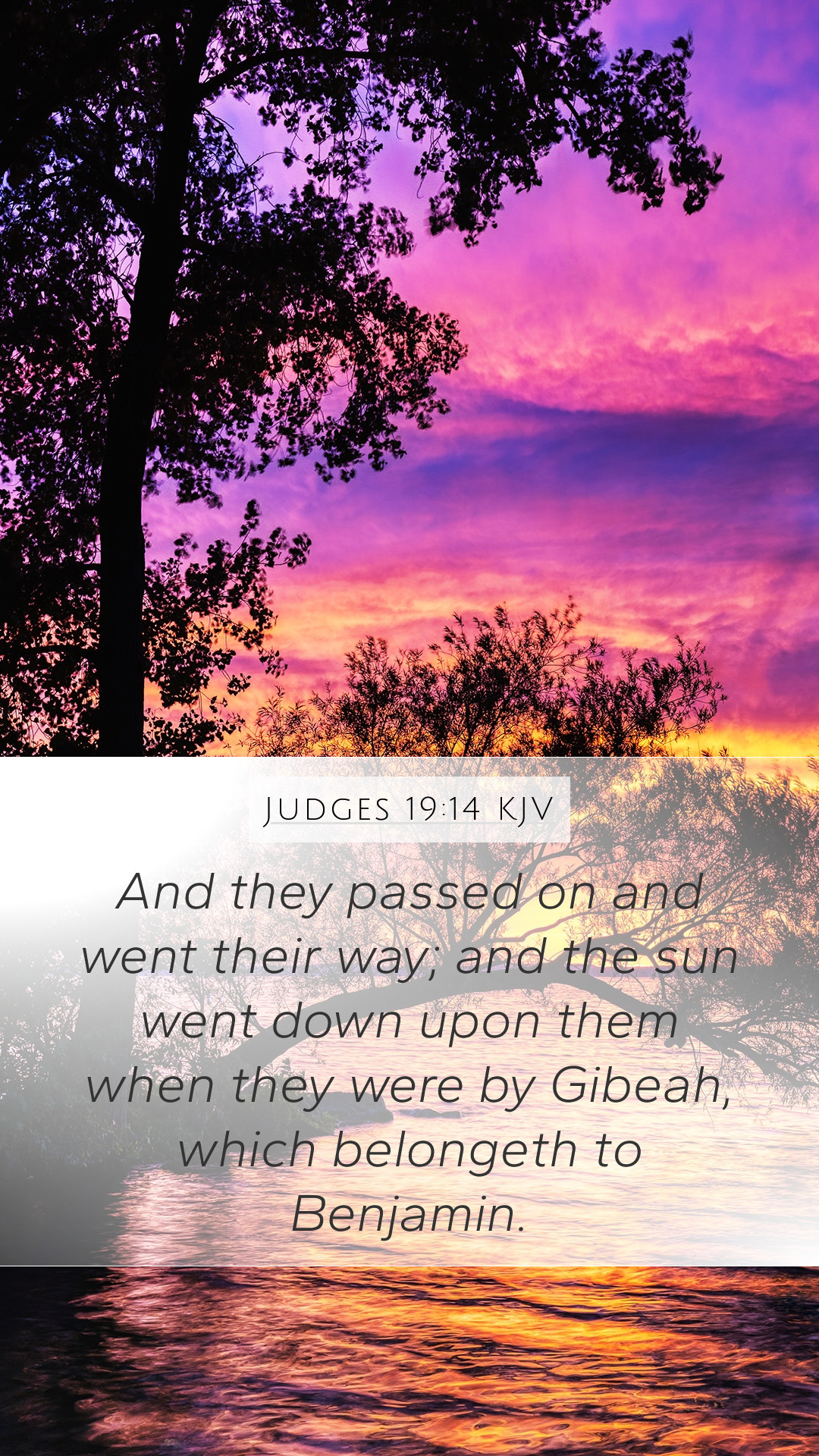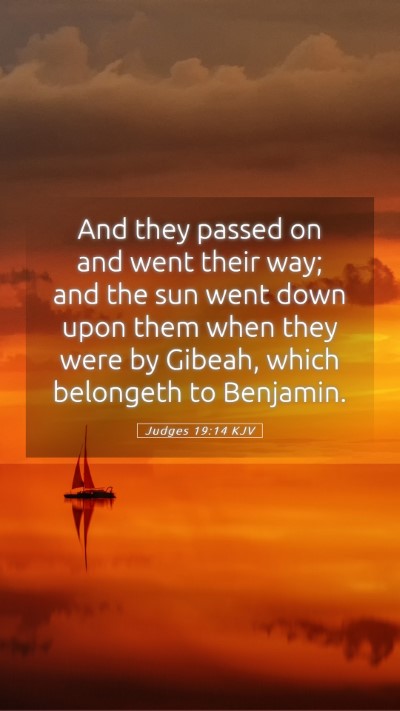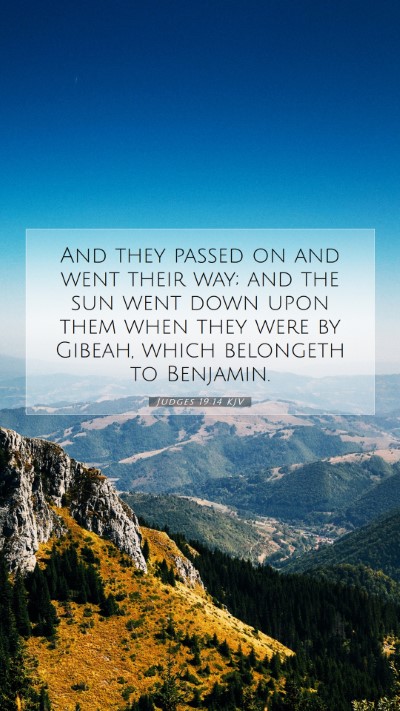Bible Verse Interpretation: Judges 19:14
Judges 19:14 reads: "So they passed on and went their way; and the sun went down upon them when they were by Gibeah, which belongeth to Benjamin." This verse is part of a narrative that reflects the tumultuous period of the Israelites when they were governed by judges rather than kings.
Contextual Background
In the book of Judges, the Israelites faced numerous challenges as they settled in the Promised Land. This particular verse occurs in the context of a Levite and his concubine traveling to Bethlehem from the hill country of Ephraim. The passage illustrates the precariousness of life during this time, as travelers often faced dangers from surrounding enmities.
Commentary Insights
-
Matthew Henry:
Henry notes that the evening approach of darkness often signifies impending danger in biblical narratives. This serves as a metaphor for moral and spiritual decline in Israel during the time of the judges.
-
Albert Barnes:
Barnes explains that Gibeah was associated with the tribe of Benjamin, highlighting the internal strife within Israel. This detail is crucial as it indicates that the dangers they faced came not just from external enemies but also from within their own ranks.
-
Adam Clarke:
Clarke provides further cultural insights on the significance of hospitality in ancient Israelite society. The choice of where to stop is critical; reluctance to stay in Gibeah foreshadows the tragic events that will unfold, reflecting on the moral state of the city.
Key Themes and Analysis
This verse mirrors broader themes in the Book of Judges related to:
- The Darkness of the Time: The mention of the setting sun can symbolize the moral darkness enveloping the people. It signifies a turning point where they need guidance, both physically and spiritually.
- Travel and Hospitality: The expectation and provision of hospitality were critical in these ancient societies, which becomes ironically significant as the narrative progresses.
- Tribal Conflict: By stating Gibeah belongs to Benjamin, the text points towards future conflict stemming from within Israel itself, hinting at the later civil war described in the subsequent chapters.
Application to Daily Life
This passage encourages modern readers to contemplate their own paths and the potential moral decisions they make daily. Just as the Levite and his concubine had to choose their route carefully, we too must be wary of the choices that lead us away from safer, more righteous paths.
Cross References
- Judges 19:1-9: Background of the Levite and his concubine.
- Judges 20:1-48: The civil war between the tribes of Israel and Benjamin.
- Genesis 19: The destruction of Sodom; a parallel to the conditions of Gibeah.
Conclusion
Judges 19:14 serves as an important verse for understanding the overall narrative of the Book of Judges. It paints a picture of a people in moral decline, facing the consequences of their actions. This reflection urges readers to engage in Bible study, using resources, and study guides to deepen their understanding of scripture and apply the lessons learned from the history of God’s people.


